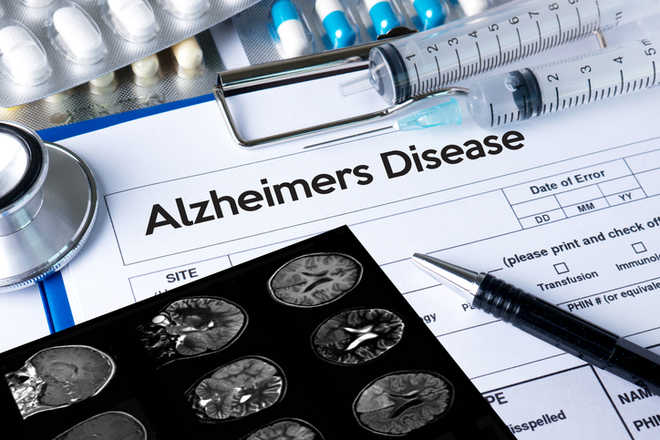
iStock
High blood sugar may cause Alzheimer’s
High blood sugar levels may not only cause diabetes, but also lead to Alzheimer’s disease, say scientists who have found that excess glucose damages a vital enzyme involved with inflammation response to the early stages of Alzheimer’s. Abnormally high blood sugar levels, or hyperglycaemia, is well-known as a characteristic of diabetes and obesity, but its link to Alzheimer’s disease is less familiar. Diabetes patients have an increased risk of developing Alzheimer’s. In Alzheimer’s abnormal proteins aggregate to form plaques and tangles in the brain which progressively damage the brain and lead to severe cognitive decline. Scientists already knew that glucose and its break-down products can damage proteins in cells via a reaction called glycation but the specific molecular link between glucose and Alzheimer’s was not understood. A team of scientists discovered that in the early stages of Alzheimer’s glycation damages an enzyme called MIF (macrophage migration inhibitory factor) which plays a role in immune response and insulin regulation. It appears that as Alzheimer’s progresses, glycation of these enzymes increases. The study is published in the journal Scientific Reports.
Back pain ups risk of early death by 13 pc
Back pain — approximately affecting 700 million people worldwide — is the leading cause of disability globally and may increase your risk of dying early by 13 per cent, researchers warn. The findings showed that compared to those without spinal pain (back and neck), a person with spinal pain has a 13 per cent higher chance of dying early. “Back pain should be recognised as an important co-morbidity that is likely to impact people’s longevity and quality of life,” said a researcher. “This is a significant finding as many people think that back pain is not life-threatening,” added the expert. An individual’s lifetime prevalence of back pain is nearly 84 per cent and more in older populations.”With a rapidly growing ageing population, spinal health is critical in maintaining older age independence,” explained the expert. Spinal pain may be part of a pattern of poor health and poor functional ability, which increases mortality risk in the older population, the researchers noted, in the paper published in the European Journal of Pain. No association was found between spinal pain and cardiovascular-specific mortality. In addition, the commonly prescribed medications for back pain such as paracetamol and anti-inflammatory drugs and even surgery was found ineffective in treating pain, but had side effects. “The best treatment for low back is a healthy lifestyle, including physical activity. People need to get moving,” said the expert.
Dietary prebiotics improve sleep
In a first-of-its kind study, scientists found that lesser-known gut-health promoters called prebiotics, which serve as food for good bacteria inside the gut, also have an impact, improving sleep and buffering the physiological impacts of stress. “Dietary prebiotics can improve non-REM sleep, as well as REM sleep after a stressful event,” said an expert. It was published in the journal Frontiers in Behavioral Neuroscience. Prebiotics are dietary fibers found naturally in foods like chicory, artichokes, raw garlic, leeks and onions. When beneficial bacteria digest prebiotic fibre, they not only multiply, improving overall gut health, but they also release metabolic byproducts. These byproducts can influence brain function For the study, the researchers fed three-week-old male rats a diet of either standard chow or chow that included prebiotics. They found that the rats on the prebiotic diet spent more time in non-rapid-eye-movement (NREM) sleep, which is restful and restorative, than those on the non-prebiotic diet. “Given that sufficient NREM sleep and proper nutrition can impact brain development and function and that sleep problems are common in early life, it is possible that a diet rich in prebiotics started in early life could help improve sleep, support the gut microbiota and promote optimal brain/psychological health,” said the expert. After being exposed to a stressor, the rats on the prebiotic diet also spent more time in rapid-eye-movement (REM) sleep. REM sleep is believed to be critical for promoting recovery from stress, with research showing that those who get more REM sleep post-trauma are less likely to suffer from post-traumatic stress disorder. Stress has previously been shown to reduce healthy diversity of gut bacteria and to lead to a temporary flattening of natural fluctuations in body temperature. But rats on the prebiotic diet were buffered from these impacts, maintaining a healthy and diverse gut microbiota and normal temperature fluctuations even after stress exposure. — Agencies



























